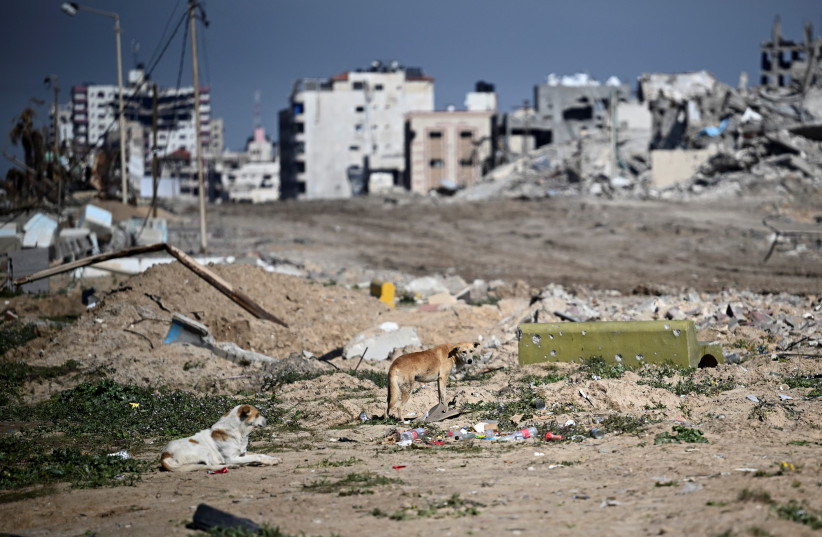The Health Ministry and Agriculture Ministry warned the general public on Wednesday not to bring into Israeli territory stray cats and dogs from the Palestinian Authority, Gaza, and from over the the northern border.
The joint statement explained the reason for the prohibition: These animals may carry with them diseases such as rabies, scabies, echinococcus, and leishmania which may spread within Israeli territory.
Those who come into contact with an animal suspected of carrying such diseases or are bitten or scratched should rinse the wound with soap and water and contact the health bureau in their closest vicinity in order to assess which treatment should be provided.
There are a number of dangerous disease spread to humans by sick dogs, cats, and rodents, leishmaniasis, which is caused by a single-celled parasite that usually lives in rural areas. The parasite is transmitted by small, biting sand flies. Dogs have a serious allergic reaction to both the mite and its feces, causing intense itchiness. The body areas most commonly affected on dogs are the margins of ears, elbows and hocks (ankles). The skin often becomes red, with crusts and hair loss
Echinococcosis is a parasitic disease caused by infection with tiny tapeworms of the genus Echinocococcus. Also known as hydatid disease, it is caused by infection with the larval stage of Echinococcus granulosus, a tapeworm two to seven millimeters long, that is found in dogs and sheep, cattle, goats, and pigs. Although most infections in humans are immediately asymptomatic, it can cause harmful, slowly enlarging cysts in the liver, lungs, and other organs that often grow unnoticed and neglected for years.
Leptospirosis is spread by infected dogs, rodents, and cows, but can also be caught from infected water and can infect humans. Caused by bacteria that damage vital organs such as the liver and kidneys, it is very serious disease, that is often fatal. Protect your dog by vaccinating them against leptospirosis.
Alveolar echinococcosis (AE) disease is caused by infection with the larval stage of Echinococcus multilocularis, a tapeworm one to four millimeters long found in foxes, coyotes, and dogs. In humans, it can result in parasitic tumors that form in the liver, lungs, brain, and other organs. If left untreated, it can be fatal.
Instead of bringing in stray cats and dogs from Gaza or the Palestinian territories, the statement recommended the more traditional mode of adopting a pet - reaching out to urban kennels or regulated associations, where the animals have been vaccinated against diseases and checked medically.

Gaza's stray dogs seek refuge in border communities
According to the statement, some 5,000 dogs have crossed into Israel from Gaza, in the absence of a fence, and are roaming the region of the western Negev.
Israel’s Nature and Parks Authority estimates the number of stray dogs within the Gaza Strip to be in the hundreds or even thousands. Following the Israel-Hamas war, these dogs have fled the enclave and have sought refuge in the ruins of the Gaza border communities.
Earlier this week, KAN news reported that packs of stray dogs had attempted to attack IDF soldiers in the Gaza Strip.
Approaching the soldiers by the hundreds, they exhibited violent behavior, growling at the troops and trying to bite them.
According to the report, the troops had managed to fend off the packs. No soldier was injured by such encounters
